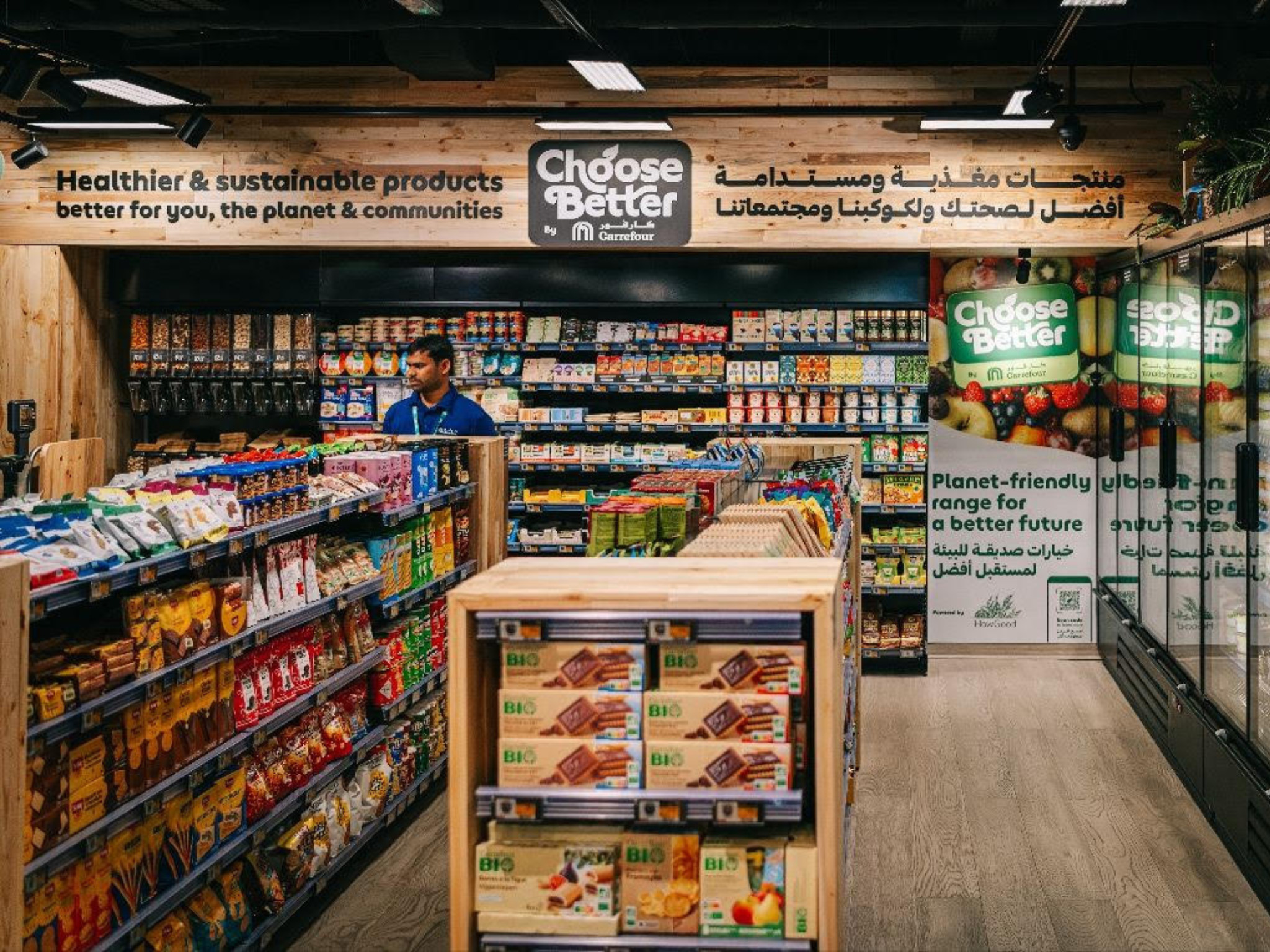5 Mins Read
New York-based sustainability research firm HowGood has partnered with Majid Al Futtaim, which operates Carrefour in the UAE, to bring the former’s climate impact labels to five of the French retail giant’s stores in Dubai, including one at COP28. HowGood’s stamp will be digitally displayed on over 2,500 food products.
HowGood, the US research agency that boasts the largest ingredient and product sustainability database (covering over 33,000 ingredients), has teamed up with Majid Al Futtaim – which operates Carrefour stores in the UAE – and SES-imagotag (a digital solutions provider for physical commerce) to bring climate impact labels to more than 2,500 food items.
The collaboration will see HowGood’s climate impact labels appear on product packaging at five Carrefour Dubai locations: Mall of the Emirates, City Centre Deira, City Centre Mirdif, Dubai International Airport’s Terminal 3, and its store at COP28 (situated at the Blue Zone in Expo City). It will make Carrefour the only retailer in the region to transparently disclose the sustainability ratings of its products.
How HowGood’s climate labels will work at Carrefour
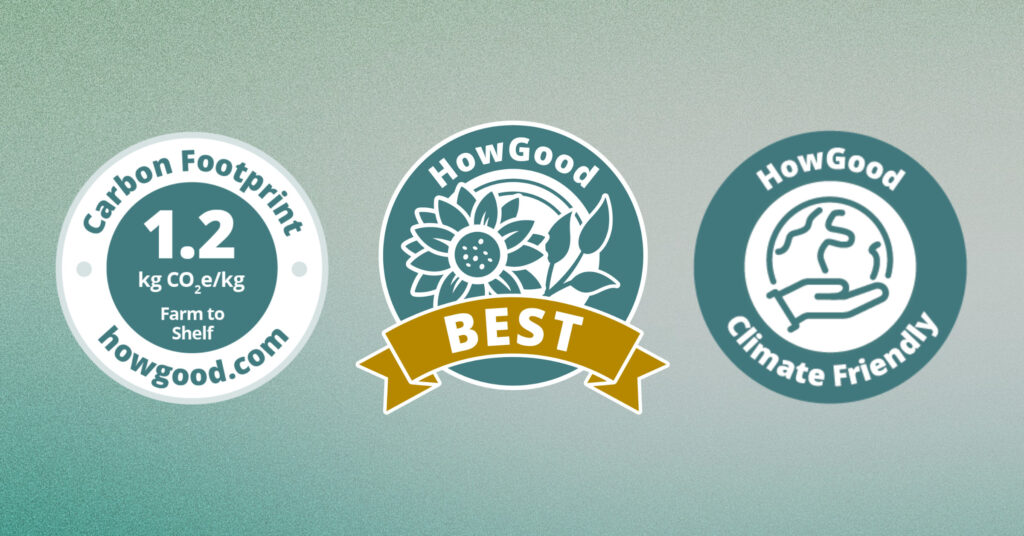
Consumers will now be able to identify the climate and social impacts of the food they buy via three labels provided by HowGood, which include information on carbon footprints and comprehensive sustainability credentials. These labels will utilise SES-imagotag’s digital shelf edge tags, which enable “seamless visibility” for consumers to help them make purchasing decisions.
The first label, Product Carbon Footprint, is a measure of the greenhouse gas emissions of the food item from cradle to shelf. The second, the Comprehensive HowGood Sustainability Rating, ranks products based on their socio-environmental impact via a percentile system. If a food has the ‘Best’ rating, it means the product has better social and climate credentials than 95% of all others assessed. ‘Great’ indicates 85% and ‘Good’ 70%.
These ratings are part of Carrefour’s Choose Better programme as well, which is launching at COP28. It aims to “educate, empower and reward customers” for making better-for-you and eco-friendly choices accessible and affordable. The scheme is built on three pillars – For You, For the Planet, and For Communities – highlighting the health, environment and social focus points. It’s a pertinent campaign, given that 83% of the Emirati population doesn’t eat its daily recommended servings of five fruits and vegetables.
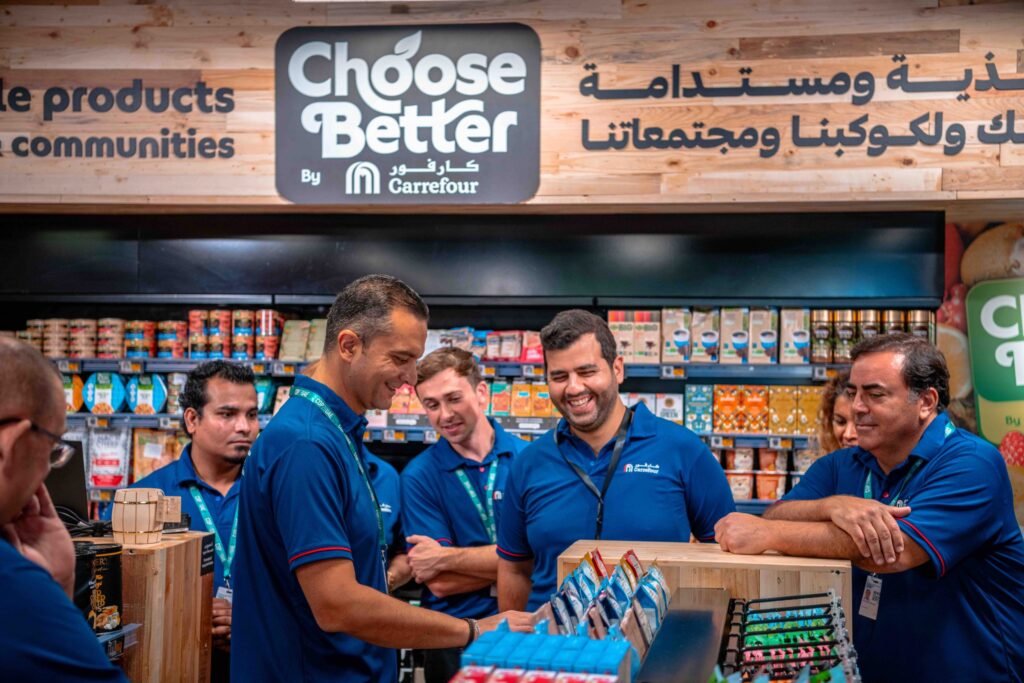
“Our launch of the Choose Better programme is not only a testament to our commitment to sustainability, it also aligns with our purpose to help customers shop smarter and live better by helping them make healthier, more sustainable shopping choices,” said Sheila Chaiban, CMO at Majid Al Futtaim. Carrefour itself claimed to have reduced its emissions by 36% in 2019 and intends to cut them by a further 30% by 2030 and 55% by 2040 (from a 2019 baseline).
The third HowGood label available at Carrefour stores is called Product Sustainability Attributes, which digs deeper into additional climate concerns. This helps shoppers identify which products use less water (Water Smart), have lower GHG emissions (Climate Friendly), comprise simpler formulations with a maximum of seven or fewer ingredients (Clean Label), are made with ingredients not dependent on commercial or industrial processing (Minimally Processed), and respect workers’ rights (Fair Labor).
Catering to consumer trends and government plans
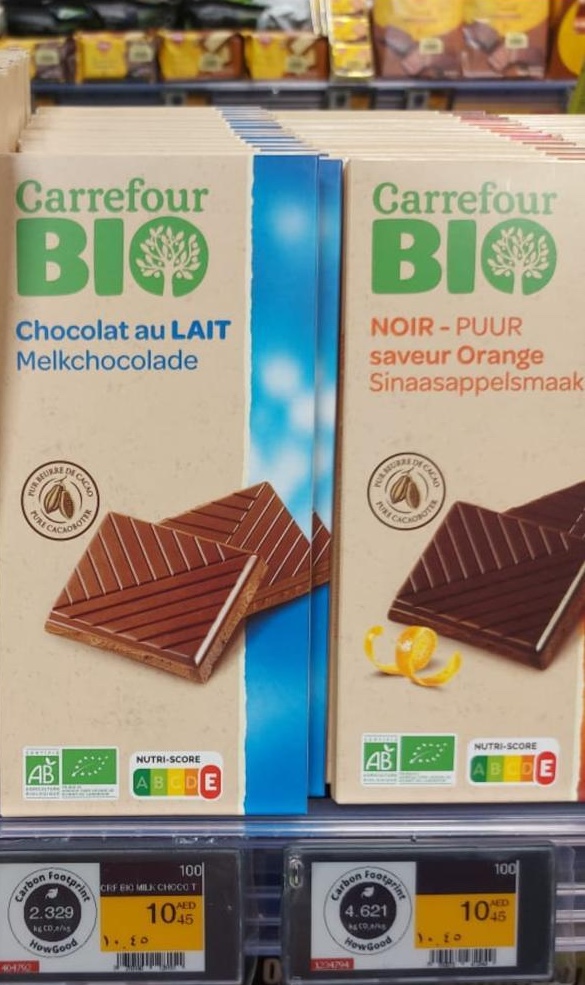
HowGood says the three labels bring transparency to multiple areas of concern surrounding the food industry and its impact on the planet. Food systems are responsible for a third of all global emissions, with meat accounting for 60% of these. As the UAE hosts the UN climate summit in its Year of Sustainability, the focus on food and its impact on the climate is more pronounced than ever before – especially given that the UAE wastes roughly 38% of all food produced daily, while food imports make up 90% of its supply and 6% of its population remains undernourished.
At the Future Food Forum in Dubai in September, a panel discussed consumers’ rising interest in plant-based and flexitarian diets in the country – 44% of its residents are open to substituting meat and dairy with vegan alternatives. And a YouGov poll last month revealed that 55% of Emirati citizens identify as flexitarian (including pescetarians), vegetarian or vegan.
That third HowGood label also ties in with what people are looking for in the country. For flexitarians and vegetarians, health is the topmost priority (58% and 59% chose it, respectively) when it comes to food choices, according to the YouGov survey. That focus on clean-label ingredients and minimal processing will appeal to this cohort, but there’s a broader precedent as well: global ingredients manufacturer Ingredion has previously found that 50% of the country’s citizens are prioritising their food and drink’s nutritional content and naturalness.
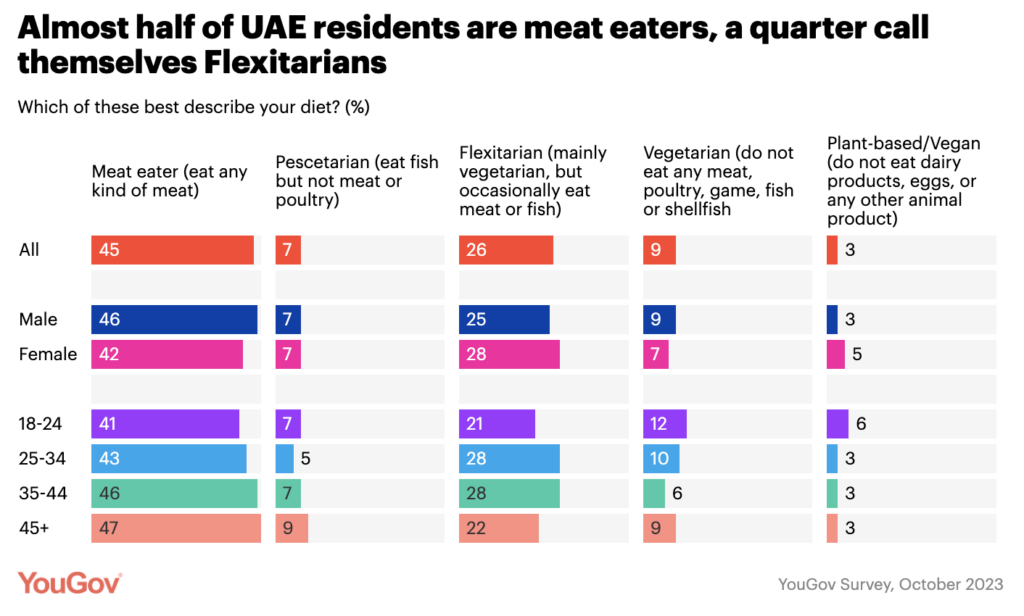
These labels have proven to be influencing consumer purchases. HowGood partnered with SES-imagotag in London recently, and the use of its attributes increased product sales by 25.8% on average. The Fair Labor attribute brought a rise of 45.1%.
It’s another chapter in what will be the UN’s first food-focused climate summit, where the FAO is set to introduce a roadmap for the agri-food sector to align to the 1.5°C goal, which COP28 president (and head of UAE national oil company Adnoc) Dr Sultan Al Jaber claims is still possible – despite recent scientific reports saying otherwise. In fact, one study has found that the world is currently on track for 3°C warming above pre-industrial levels, amplifying the importance of striking international climate deals at COP28.
“Food brands and retailers have an immense opportunity to drive transparency and empower more sustainable decision-making,” said HowGood chief innovation officer Ethan Soloviev. “Our launch at COP28 will be a clear signal of where the future of retail is headed with regard to sustainability.”


